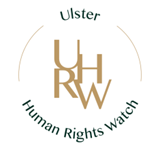UHRW supports Convention-compliant ICRIR
Victim of terrorism support organisation, Ulster Human Rights Watch, has written to Hilary Benn, Labour MP, Michael O’Flaherty, Commissioner for Human Rights at the Council of Europe and Christos Giakoumoloulos, Director General of Human Rights and Rule of Law at the Council of Europe, urging them to continue supporting the newly established Independent Commission for Reconciliation and Information Recovery (ICRIR).
UHRW said it held the view that since the Dillon v. Secretary of State judgement rendered by the High Court in Belfast on 28 February this year, the immunity provisions in the Act were declared incompatible with the Convention. The Court also confirmed that the ICRIR has the power to deal with historical investigations in a Convention-compliant way. Therefore it has the potential to deliver positive outcomes for innocent victims of terrorism in a more effective way than under the Stormont House Agreement proposals.
The Lurgan-based human rights body said it had engaged with the Chief Commissioner for the ICRIR, former Lord Chief Justice of Northern Ireland, Sir Declan Morgan, and made a number of recommendations for its Operational Design with a view to positively contributing to the operation of the agency, which is in the process of being considered and addressed.
This is a welcome and positive step, since UHRW’s responsibility is to make representations so as to advise and guide on what is required to address the needs of victims of terrorism with a view to delivering for them as far as possible truth, justice and acknowledgement.
UHRW Advocacy Manager, Axel Schmidt, said: “We’ve written to Mr Benn and the Council of Europe Commissioner for Human Rights, Michael O’Flaherty, and Council of Europe Director General of Human Rights and Rule of Law, Christos Giakoumoloulos, to make them aware of our position.
“After careful consideration, we’ve arrived at the view that the ICRIR, following the High Court judgement, has the means to be fully Convention-compliant, which is also an improvement on the situation concerning inquests. This is why we have justified reasons to support it for the benefit of the victims we represent.”
In the letter to Mr Benn, Mr O’Flaherty and Mr Giakoumoloulos, UHRW said: “It must be recognised that the ICRIR does provide a means of addressing the legacy of the past that is European Convention-compliant.
“We would therefore urge you to support the continuity of the ICRIR while resisting the revival of the Stormont House Agreement proposals, which would favour the justification of terrorism, fail to meet the needs of Victims of Terrorism and prevent Northern Ireland society from moving towards peace and reconciliation.”
Mr Schmidt said they’d asked for a meeting with the former Shadow Secretary of State for Northern Ireland to set out the position in greater detail.
